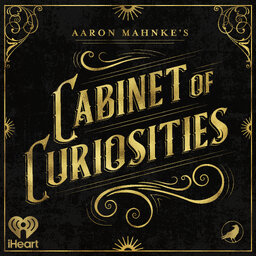Magic Man
History is filled with great individuals who are remembered for their deeds and accomplishments. But today's tour might shed some light on just how curious those heroes can be.
Learn more about your ad-choices at https://www.iheartpodcastnetwork.com
 Aaron Mahnke's Cabinet of Curiosities
Aaron Mahnke's Cabinet of Curiosities


